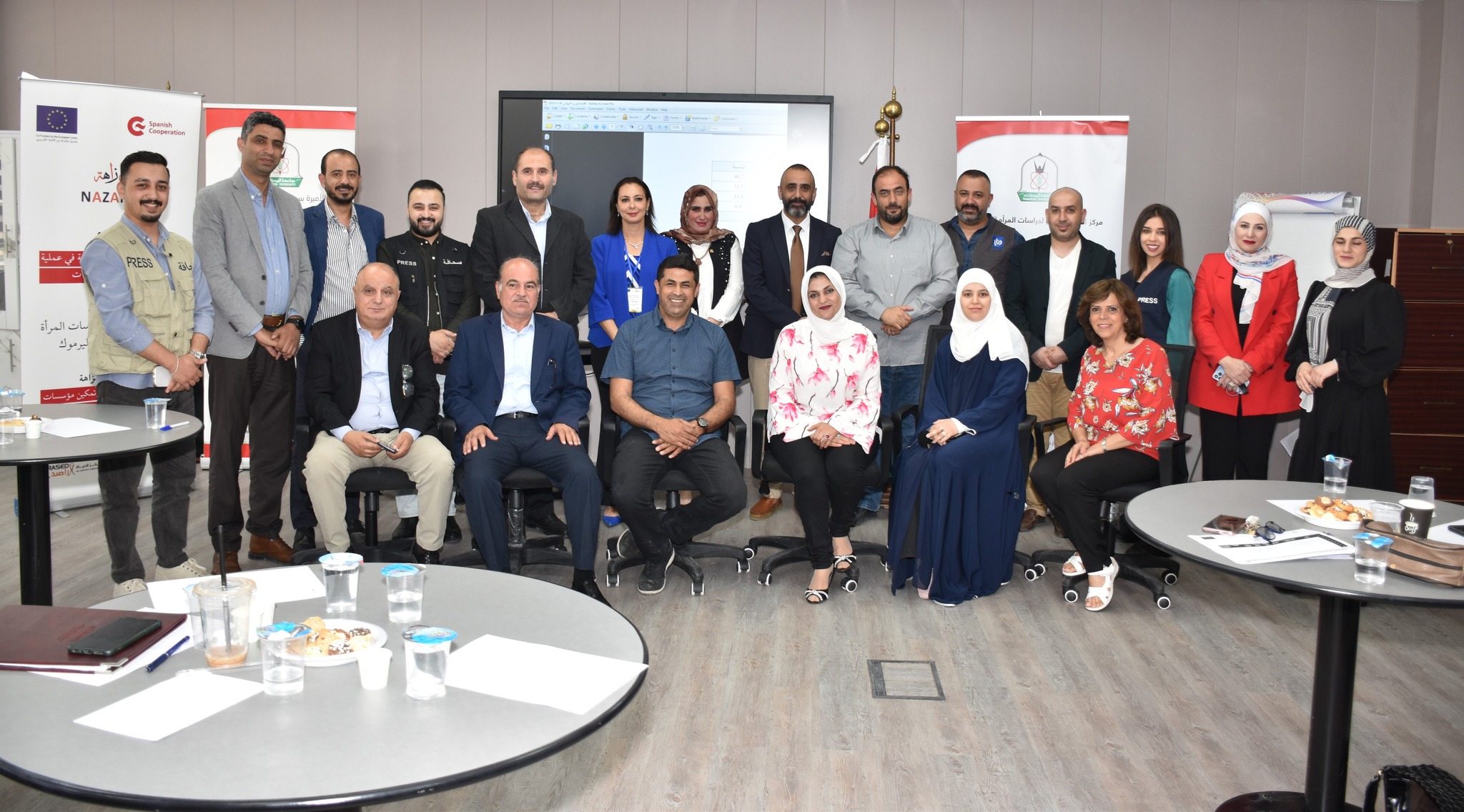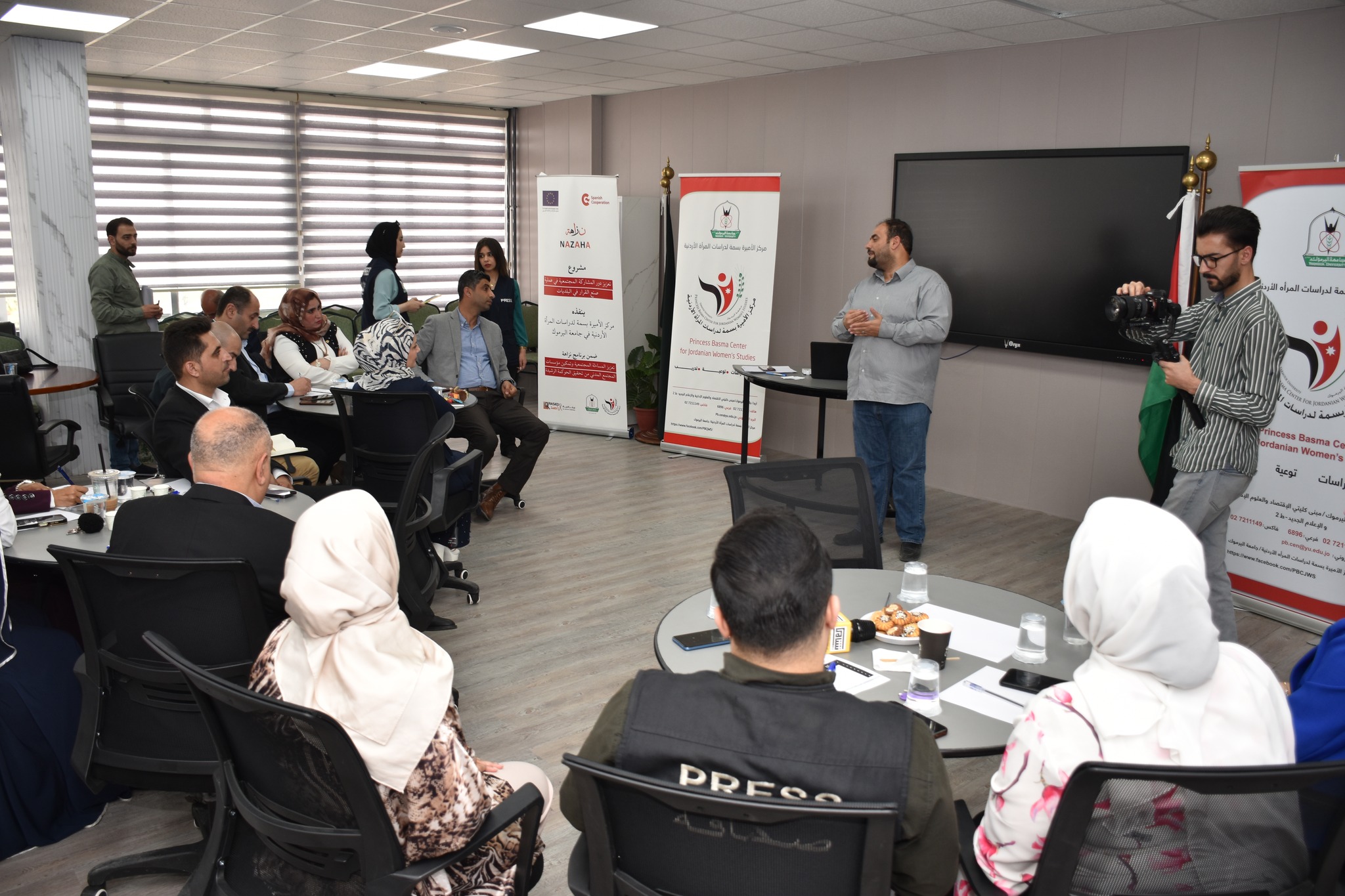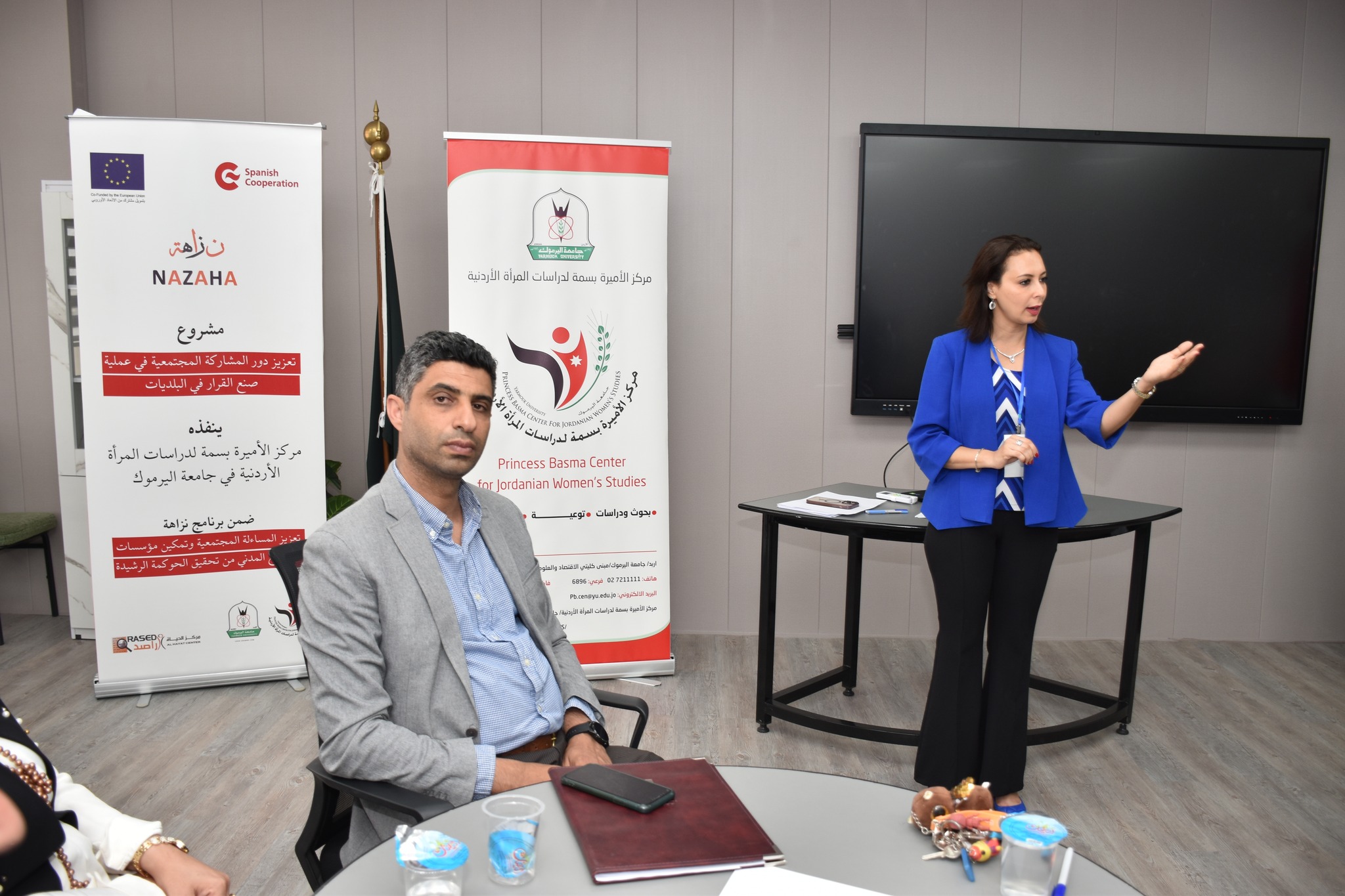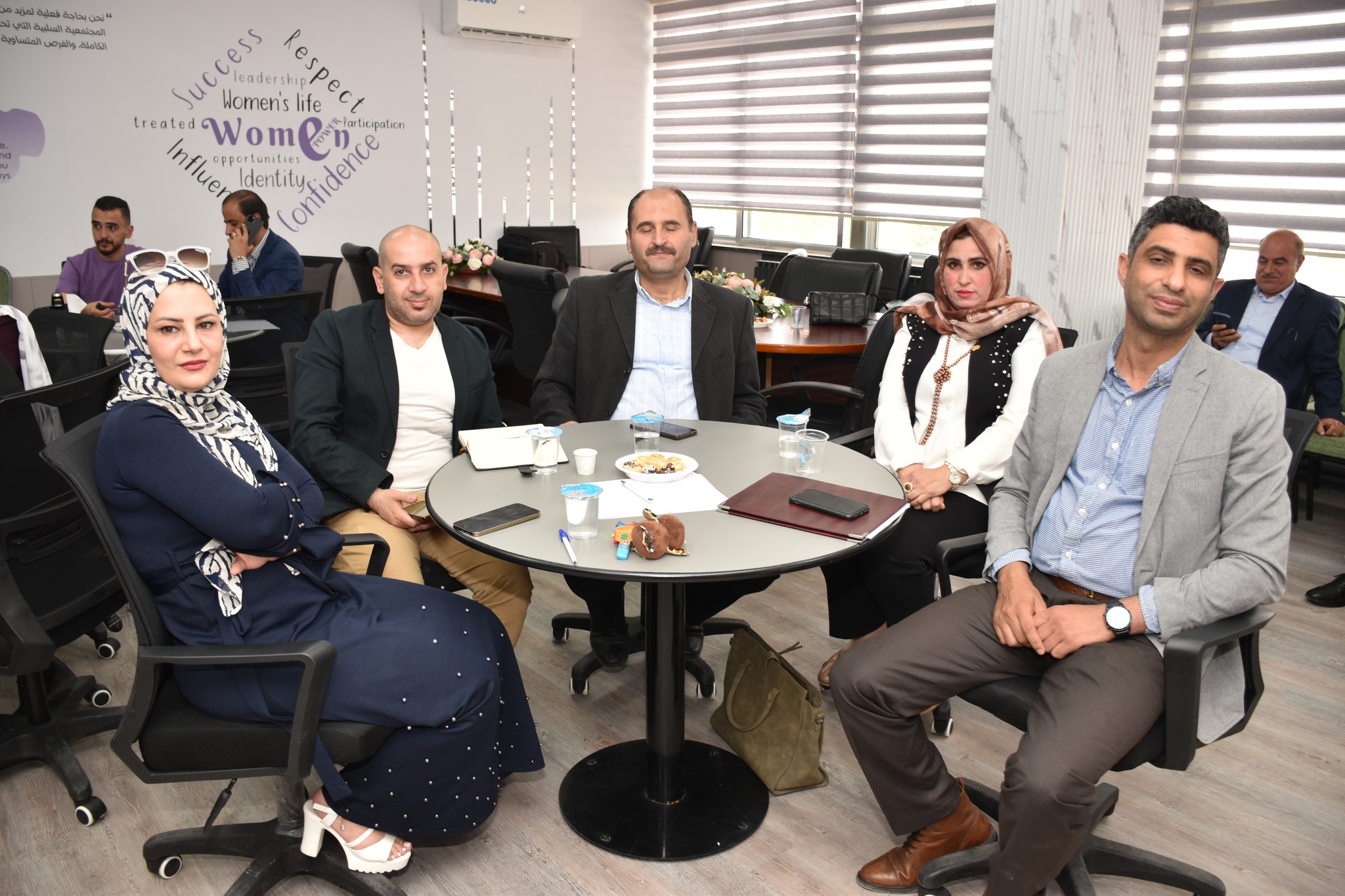
The Princess Basma Center for Jordanian Women's Studies at Yarmouk University, in partnership with Al-Hayat Center "RASED" and with funding from the European Union and the Spanish Agency for International Development Cooperation, has released the results of a field survey for the study "Assessing the reality of community satisfaction in municipalities and the extent of practicing social accountability."
A team of academics and specialists in the fields of community accountability and local government development carried out the field study on the Bani Obaid municipality with the goal of evaluating the state of local government, gauging the level of citizen satisfaction with the services offered by municipalities locally, offering thorough and unbiased information about the contribution of municipalities to community development and promoting women's empowerment, and offering suggestions meant to improve local government systems and realize the goals of local communities towards sustainable and all-encompassing development.
Four categories shaped the study's findings: general respondent information; community accountability in assessing the performance of the municipality of Bani Obeid District and the degree of community satisfaction; community accountability regarding the municipality's role in community development and women's empowerment in Bani Obeid areas; and community accountability regarding the municipality's commitment to providing public services in Bani Obeid Brigade areas.
The study contacted 902 respondents in the areas of Al-Sareeh, Aydun, and Al-Hosn. Of these, 49% were male and 51% were female. Of these, 27% visited the headquarters of their municipalities just once in order to follow up on their treatment in the municipality, help others, or do special relations, and 59% did not visit the headquarters.
According to the study, 33.1% of respondents said they thought the municipality's staff lacked experience. It also revealed how overall satisfied citizens are with the issue of empowering women and activating their role in the municipality, as well as the municipal council's belief in gender.
The report made recommendations for strengthening community awareness and education, raising transparency and accountability, raising women's participation in decision-making, strengthening cooperation between municipalities and community institutions, and creating development policies and programs with a military budget.
The report further suggested giving women more chances for education and training, improving public resource management integrity, encouraging youth involvement, improving administrative effectiveness and efficiency, and improving communication and community engagement.
Dr. Batoul Al-Muhaisen, the Center's Director, stated that the Princess Basma Center for Jordanian Women's Studies aims to accomplish the same goals that Yarmouk University has done through scientific research and qualitative awareness.
She emphasized that the "Nazaha" project has a schedule and specific goals, allowing us to assess the extent to which municipalities adhere to social governance and accountability norms, as well as the degree to which various community groups, particularly women, the elderly, and those with disabilities, feel connected to the municipality.
Al-Muhaisen said, "We have a set of indicators that can be built upon and developed to serve the community and enhance municipal work in our local environment, thanks to the field survey prepared by a group of specialized researchers."




